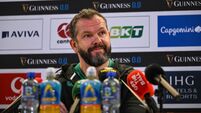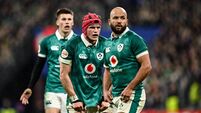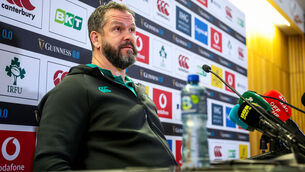On and off Broadway
JOHN FOGARTY could have been forgiven for wondering just what all the fuss was about when he finally made his Heineken Cup debut for Leinster in front of just over 5,000 people at a near-deserted Murrayfield back in October of 2008.
For the previous five years the Tipperary man’s European experiences had been confined to the less vaunted Challenge Cup in which he appeared 27 times. The footfall for that Edinburgh game wasn’t exactly a leap from the numbers he had known in Galway.














